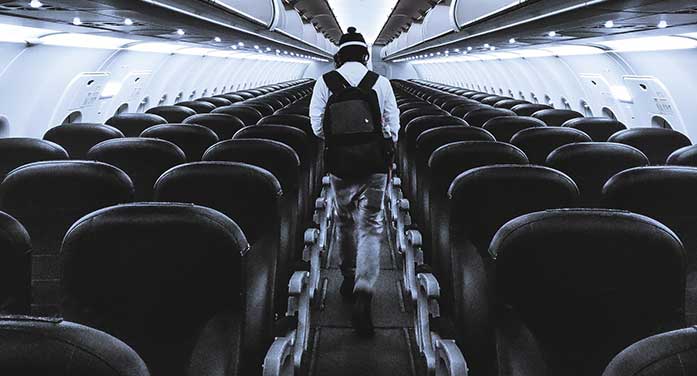 The COVID-19 crisis led to significant travel restrictions around the world. Canada has totally or partially closed its borders to tourists and non-essential travellers.
The COVID-19 crisis led to significant travel restrictions around the world. Canada has totally or partially closed its borders to tourists and non-essential travellers.
Travel between provinces has also been restricted. Provinces such as New Brunswick, Prince Edward Island, Newfoundland and Labrador banned non-essential travel or all travel between provinces. And we were told not to travel to provinces like British Columbia and Ontario unless it was essential.
But if people can’t travel, tourism can’t flourish. COVID-19 has strongly impacted this sector.
In 2019, tourism activities accounted for about two per cent of Canada’s gross domestic product and generated about 750,000 jobs. Destination Canada reports that tourism is linked to one in 10 Canadian jobs, so 1.9 million jobs.
Tourism contributes significantly to the Canadian economy; 99 per cent of businesses in Canada’s tourism sector are small or medium-sized enterprises. For them, it’s more challenging to deal with the loss of income.
As a result, Canada’s tourism sector losses in 2020 are the worst on record. Destination Canada also states that the economic impact of COVID on tourism is more significant than that experienced after 9/11, SARS and the 2008 economic crisis combined.
 As reported by Statistics Canada in 2020: “In March 2020, the number of international arrivals to Canada from other countries fell by 54.2 per cent from February 2020, the largest single monthly drop since 1972. Most hotels were empty: by the first week of April 2020, the hotel occupancy rate was below 20per cent across Canada.”
As reported by Statistics Canada in 2020: “In March 2020, the number of international arrivals to Canada from other countries fell by 54.2 per cent from February 2020, the largest single monthly drop since 1972. Most hotels were empty: by the first week of April 2020, the hotel occupancy rate was below 20per cent across Canada.”
The impact on jobs is huge. The total paid employment in the tourism industry for April and May 2020 declined by almost 60 per cent from 2019 levels, more than double the trends observed in non-tourism industries.
The effect on the Canadian economy can be a loss of 1.2 per cent to 1.7 per cent in total GDP and could have adverse effects on up to half a million jobs.
Destination Canada statistics show that the tourism sector workforce is principally composed of women, youth and immigrants. Women account for 70 per cent of the workforce in the travel service sector, 60 per cent in accommodation and 57.7 per cent in food and beverage services.
Moreover, 30 per cent of jobs in tourism are held by Canadians aged 15 to 24, well above their 12.7 per cent share of the total labour force.
Immigrants represent 26 per cent of the tourism labour force and about 23 per cent of the total Canadian labour force.
The tourism sector problems also threaten First Nations economies. Indigenous tourism was a growing sector before the crisis, helping the economic development of many First Nations. Based on the estimates from the Indigenous Tourism Association of Canada, “all suggest that sector-specific growth has been faster than the overall Canadian tourism sector, both in terms of GDP and employment.”
COVID-19 seriously hinders the growth of this sector and, in some cases, its survival. Considering the economic difficulties of many First Nations communities, this trend is worrying.
The progressive lift of COVID-19-related restrictions allows for a return to normalcy. But partial border closures remain.
Opening borders to fully vaccinated people is a good start, but some problems are still present. With most Western countries having just between 40 and 65 per cent of their population fully vaccinated, many people are still unvaccinated and won’t be able to travel.
The tourism sector needs a clear view of its future. Reinstating restrictions could destroy the trust of businesses involved and have a disastrous impact on their survival.
A transparent, trustable and long-term government policy on reviving tourism is desperately needed.
Alexandre Massaux is a research associate at the Frontier Centre for Public Policy.
Alexandre is a Troy Media Thought Leader. For interview requests, click here.
The views, opinions and positions expressed by columnists and contributors are the authors’ alone. They do not inherently or expressly reflect the views, opinions and/or positions of our publication.
© Troy Media
Troy Media is an editorial content provider to media outlets and its own hosted community news outlets across Canada.

